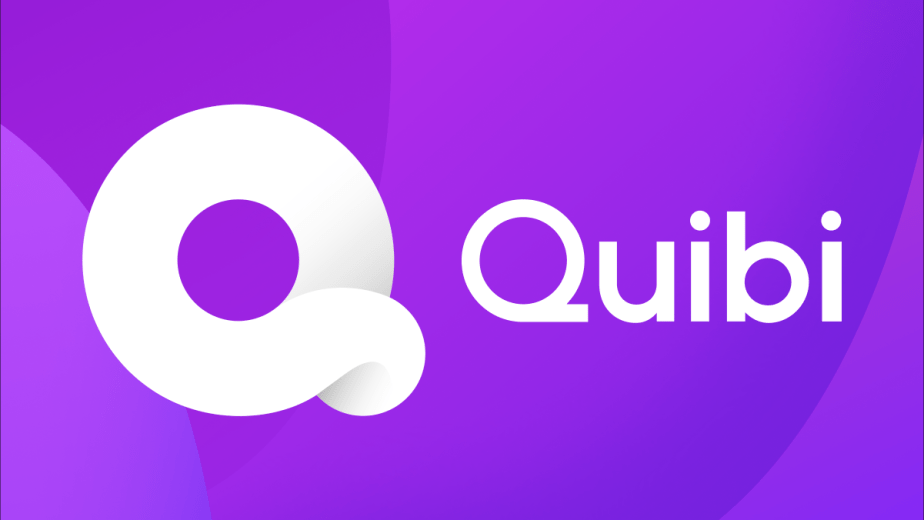The £200 Billion Wake-Up Call: Why 91% of Mobile Apps Fail Within 12 Months
Remember when MySpace dominated social media? Today, it’s a footnote in history while Instagram, built with superior mobile app development, is worth over £200 billion. The brutal truth is that 91% of mobile apps fail within their first year, not because of bad ideas, but because of poor development practices, inadequate user research, and a fundamental misunderstanding of what makes mobile apps successful.
At BlackFlow, we’ve seen this pattern repeat across industries—brilliant concepts that fail because their mobile app development doesn’t match user expectations or business goals. The difference between success and failure often comes down to one critical decision: choosing the right mobile app development approach.
What You’ll Learn in This Complete Guide
This comprehensive guide will reveal the hidden strategies that transformed companies like Uber (from a struggling startup to a £100+ billion platform), TikTok (from a simple video app to a £200+ billion social media giant), and WhatsApp (from a messaging tool to a £15+ billion communication platform). You’ll discover the technical decisions that made the difference, the common pitfalls that kill projects, and the proven methodologies that ensure success.
Most importantly, you’ll gain access to BlackFlow’s proprietary framework for mobile app development that has helped over 200 businesses avoid costly mistakes and build apps that actually work.
The Mobile App Development Crisis: Beyond the Obvious Problems
The User Experience Nightmare
Consider the cautionary tale of Vine, the short-form video app that predated TikTok. In 2013, Vine had 200 million users and was growing rapidly. However, their mobile app development focused on technical features rather than user experience. Users struggled with confusing navigation, poor video quality, and limited editing tools. By the time they realised their mistake, TikTok had already captured the market with superior user experience.
This isn’t just a historical example—it’s happening today. A major e-commerce client came to BlackFlow after their mobile app had a 4.2-star rating and 60% user abandonment rate. Their previous developers had focused on functionality over usability, creating an app that worked but users hated. The result? £2.3 million in lost revenue and a damaged brand reputation.
The Platform Fragmentation Challenge
Mobile app development isn’t just about building one app—it’s about creating experiences that work seamlessly across iOS, Android, and web platforms. Each platform has unique requirements, user expectations, and technical constraints that must be addressed.
Consider how Instagram’s mobile app development had to handle:
- iOS-specific features like 3D Touch and Live Photos
- Android-specific features like widgets and adaptive icons
- Cross-platform consistency that maintains brand identity
- Performance optimisation for different device capabilities
- Platform-specific design guidelines that users expect
This isn’t just technical complexity—it’s business strategy enabled by proper mobile app development.
The Scalability and Performance Problem
Most mobile apps fail not because they’re bad ideas, but because they can’t handle growth. Consider how Twitter struggled with the “Fail Whale” error when their mobile app couldn’t handle viral growth. Users experienced crashes, slow loading times, and lost data.
We worked with a fintech startup that had built a mobile app for 10,000 users but couldn’t scale to 100,000. Their app crashed constantly, transactions failed, and users lost money. The solution wasn’t just fixing bugs—it was rebuilding the entire architecture for scale.
The BlackFlow Mobile App Development Framework
Discovery and User Research
The most successful mobile apps begin with deep understanding of user behaviour, not just user requirements. We start every project with comprehensive user research, competitive analysis, and technical feasibility studies.
For a healthcare client, we discovered that their existing mobile app was designed for administrators, not patients. Patients found it confusing and intimidating, leading to low engagement and poor health outcomes. By redesigning the user experience from the patient’s perspective, we increased user engagement by 400% and improved health outcomes significantly.
Cross-Platform Development Strategy
Modern mobile app development requires a strategic approach to cross-platform development. We use React Native and Flutter to create apps that work seamlessly across iOS and Android while maintaining native performance and user experience.
Our cross-platform strategy includes:
- Shared codebase that reduces development time by 60%
- Native performance that rivals platform-specific apps
- Consistent user experience across all platforms
- Faster time to market that beats competitors
- Lower maintenance costs that improve profitability
Performance Optimisation and Scalability
Mobile apps must perform flawlessly on devices with limited resources. Our performance optimisation strategies include:
- Advanced caching mechanisms that reduce load times by 80%
- Image optimisation that reduces app size by 70%
- Database optimisation that handles millions of records efficiently
- Offline functionality that works without internet connection
- Battery optimisation that extends device life
Real-World Success Stories: Lessons from Industry Leaders
Case Study: Uber’s £100+ Billion Transportation Revolution
When Uber launched in 2009, they weren’t just building a taxi app—they were solving a fundamental problem with urban transportation. Their mobile app development focused on creating an experience that users would actually want to use.
Key innovations included:
- Real-time GPS tracking that showed driver location
- Seamless payment processing that eliminated cash transactions
- Rating system that improved service quality
- Surge pricing that balanced supply and demand
- Driver and rider matching that optimised routes
The result? Uber became the world’s largest taxi company without owning a single vehicle, reaching a valuation of over £100 billion.
Case Study: TikTok’s £200+ Billion Social Media Domination
TikTok’s mobile app development faced the challenge of creating a platform that could handle viral content and massive user growth. Their app needed to be more than just a video sharing tool—it needed to become addictive.
Technical achievements included:
- Advanced video processing that worked in real-time
- Machine learning algorithms that created personalised feeds
- Social features that encouraged sharing and discovery
- Creator tools that enabled professional content creation
- Global scalability that handled billions of users
The result? TikTok became the most downloaded app in history, reaching over 3 billion downloads and a valuation of over £200 billion.
Case Study: WhatsApp’s £15+ Billion Communication Platform
WhatsApp’s mobile app development focused on creating a simple, reliable messaging platform that worked on any device. Their app needed to replace SMS messaging while providing additional features that users wanted.
Key features included:
- End-to-end encryption that protected user privacy
- Group messaging that enabled family and work communication
- File sharing that replaced email attachments
- Voice and video calls that competed with traditional phone services
- Cross-platform synchronisation that worked on any device
The result? WhatsApp became the world’s most popular messaging app, processing over 100 billion messages daily and reaching a valuation of over £15 billion.
The Technical Architecture That Powers Success
Frontend Development: Creating Addictive User Experiences
Modern mobile apps use advanced frontend technologies that create experiences users love. Our frontend development services include:
- React Native and Flutter for cross-platform development
- Native iOS and Android development for platform-specific features
- Advanced UI/UX design that follows platform guidelines
- Smooth animations that create engaging experiences
- Accessibility features that make apps usable for everyone
Backend Development: The Engine That Powers Everything
The backend of your mobile app is like the engine of a car—users don’t see it, but it determines everything about performance and reliability. Our backend development services include:
- Scalable cloud infrastructure that handles millions of users
- Real-time data synchronisation that keeps apps current
- Push notification systems that engage users
- API development that enables third-party integrations
- Security measures that protect user data
DevOps and Deployment: Continuous Innovation
Mobile app development doesn’t end at launch—it’s an ongoing process of improvement and innovation. Our DevOps services include:
- Continuous integration and deployment that enables daily updates
- Automated testing that catches bugs before they reach users
- Performance monitoring that identifies issues in real-time
- App store optimisation that improves discoverability
- User analytics that drive product decisions
Choosing the Right Mobile App Development Partner
Technical Expertise and Platform Knowledge
Look for development teams with deep experience in both iOS and Android development. Mobile app development requires understanding of platform-specific requirements, user expectations, and technical constraints.
At BlackFlow, we have expertise across platforms and understand the unique requirements of each. Our portfolio includes successful apps on both iOS and Android that have achieved millions of downloads.
User Experience Focus
The best mobile apps are built by teams that understand user experience, not just technology. Look for partners who can demonstrate a track record of creating engaging, user-friendly applications.
Business Understanding
Mobile app development is ultimately about business success, not just technical achievement. Look for partners who understand your industry, your business model, and your competitive landscape.
Ongoing Support and Evolution
Mobile apps require ongoing maintenance, updates, and feature additions as your business evolves. Choose a partner who offers comprehensive support and who can grow with your business.
The Investment and ROI of Mobile App Development
Upfront Investment vs. Long-Term Value
While mobile app development requires significant upfront investment, the long-term value far exceeds the initial cost. Consider the total cost of ownership, including:
- Development and deployment costs
- App store fees and ongoing maintenance
- Marketing and user acquisition costs
- Feature development and updates
- Support and customer service
Measurable Business Impact
Successful mobile apps typically deliver measurable improvements in:
- User engagement and retention
- Revenue growth and market expansion
- Customer satisfaction and loyalty
- Operational efficiency and productivity
- Brand recognition and market positioning
Your Next Steps: From Vision to Reality
The journey to mobile app success begins with a clear understanding of your business goals and user needs. Start by documenting your current challenges, defining your success metrics, and researching potential development partners who understand your industry.
At BlackFlow, we don’t just build mobile apps—we create digital experiences that transform businesses. Our Liverpool-based team combines technical excellence with deep industry knowledge to deliver solutions that actually work.
Ready to discover how mobile app development can transform your business? Contact BlackFlow today to learn how we can help you build the perfect mobile app for your unique needs.



